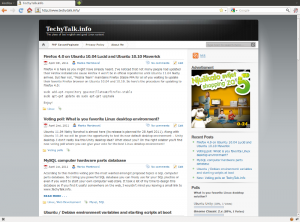Background
One of the most important aspects of modern programming is concept of reuse of code. Even C programming language allows us to reuse our code using concepts like simple functions and structures. C++ programming language goes one step further and allows us to group related variables and functions into classes with the same purpose - the reuse of our valuable code. By using libraries we can go even further from sharing code inside one process - we can share code between completely different programs.
What changes when using libraries? Answer to that question is: "link phase" of your program. In this phase GNU linker links all code modules in fully functional program. When it comes to libraries on Linux operating system we have two basic concepts: static and dynamic (often called "shared"). In this article series I will do my best to explain both Linux libraries concepts using simple C language examples.
Continue reading

